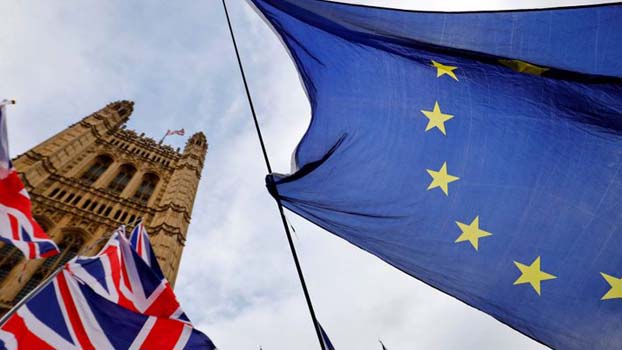Charting a new course for the European Union in 2020

Finally — after three deadline extensions, two prime ministers and 1,274 days of political wrangling — come January 31, the United Kingdom will have left the European Union.
But that’s not the end of Brexit. Come February 1, negotiators from both sides will be working on a free-trade agreement that will lay out the future relationship between the UK and the EU once the transition period ends on December 31. So what now for Britain and Europe? And with Brexit mostly done and dusted, what happens in Europe in the coming 12 months?
For starters, come mid-January, Malta will have a new prime minister. The current premier, Joseph Muscat, has been hounded by calls to step aside before then following an inquiry into his government’s alleged involvement in the murder of a Daphne Caruana Galizia, a journalist who was investigating its ties to political corruption on the Mediterranean island.
That mid-January date is too late and too vague for too many, with the European Parliament in Strasbourg overwhelming voting in favour of a call for him to go immediately, and Muscat denies all accusations of wrongdoing even if senior aides were implicated in the scandal.
By the end of January Britain will have formally ended its 46-year-old marriage to the political, social and economic bloc, with newly re-elected Prime Minister Boris Johnson intent on setting a new course for his nation. Already, Johnson has committed to building 40 new hospitals and hiring 50,000 nurses for the UK’s chronically underfunded National Health Services. He has promised to invest in transport and infrastructure, broadband and technology, education and to hire 20,000 more police officers and get tough on crime, sentencing and anti-social behaviour.
While Johnson is fixated on his domestic agenda, he will do well to pay careful attention to the union that ties together England, Scotland, Wales and Northern Ireland into the UK. North of the border, Scotland backed the Scottish Nationalist Party in droves, and First Minister Nicola Sturgeon is promising to renew calls for a second referendum on independence.
From across the Irish Sea, there will be increasing pressure on Johnson to clarify the relationship between Northern Ireland with the rest of the union and indeed with the Republic of Ireland to its south. Nationalists now hold more seats in the British-governed province than at any time since the partition of the Irish island in 1921. The Brexit Withdrawal Agreement also allows for customs checks in the Irish Sea for goods travelling between the province and the British mainland. This internal customs border also weakens the bond unionists believe exists between the province and the rest of the UK.
Throughout the Brexit process, Irish Taoiseach Leo Varadkar has been adamant in protecting the Republic of Ireland from any negative fallout. His coalition government, however, faces a general election that is likely to be called in late spring, or possibly as early as the end of February.
President Emmanuel Macron of France has faced a year of civil disobedience from the so-called gilets jaunes movement, a disparate street-level campaign against pension and economic reforms planned by his government. That unrest, combined with labour strikes may very well force him to change tack early in 2020 but when it comes to Europe, Macron has been focused. Throughout the Brexit process, he has always kept one eye on the broader picture and future of the EU. He believes in greater European integration, a stronger euro — the common currency used by 19 of the soon-to-be 27 nations in the EU — and would like to see the creation of a European military structure. That thinking may be in part why he referred to the North Atlantic Treaty Organisation as being “brain dead” — and wants to see a focus on tackling Islamist terrorism and extremism.
Throughout, Macron’s vision has been mostly supported by German Chancellor Angela Merkel. She has already indicated her intent to step aside before the next German federal election due in October, 2021. There are regional elections due in Hamburg this February, and how well the right-wing Alternative for Germany (AfD) does then may very well determine Merkel’s final timetable to step aside. Her successor, Annegret Kramp-Karrenbauer will need time to organise the Christian Democrats and solidify her coalition partnership with the Social Democrats well before that 2021 federal election — to offer a legitimate challenge to the rising AfD.
The EU will need to come to grips in the coming 12 months with member nations who are undermining the European project by eroding its rules, curtailing press freedoms and emasculating the principles of an independent judiciary.
Already, the Supreme Court in Poland has warned the governing Law and Justice party that further prosed judicial reforms so blatantly violate European Law that the nation risks being suspended by the EU. Brussels too has issued a similar warning, and has taken the first steps to sanction Warsaw. There are similar concerns in Brussels over the populist administration of Viktor Orban in Hungary.
Mick O’Reilly is the Foreign Correspondent for Gulf News.
—Gulf News



